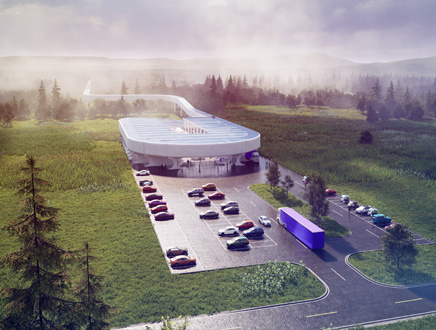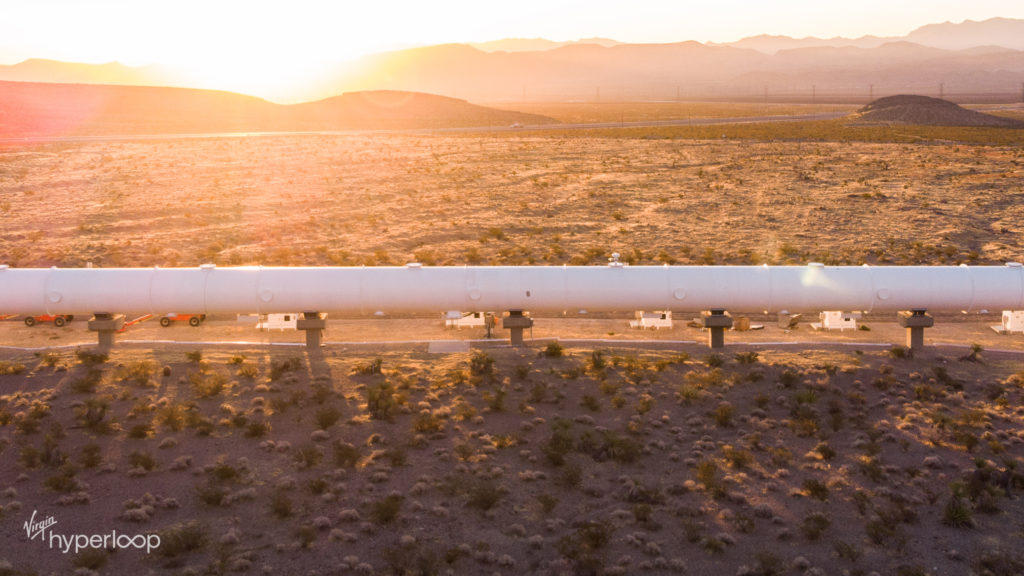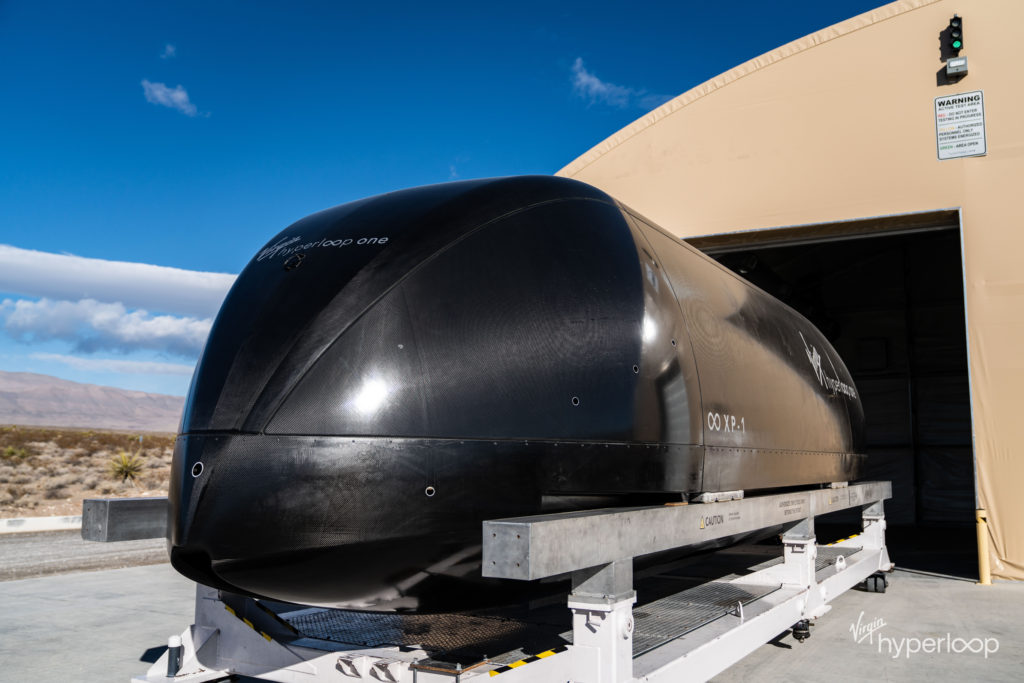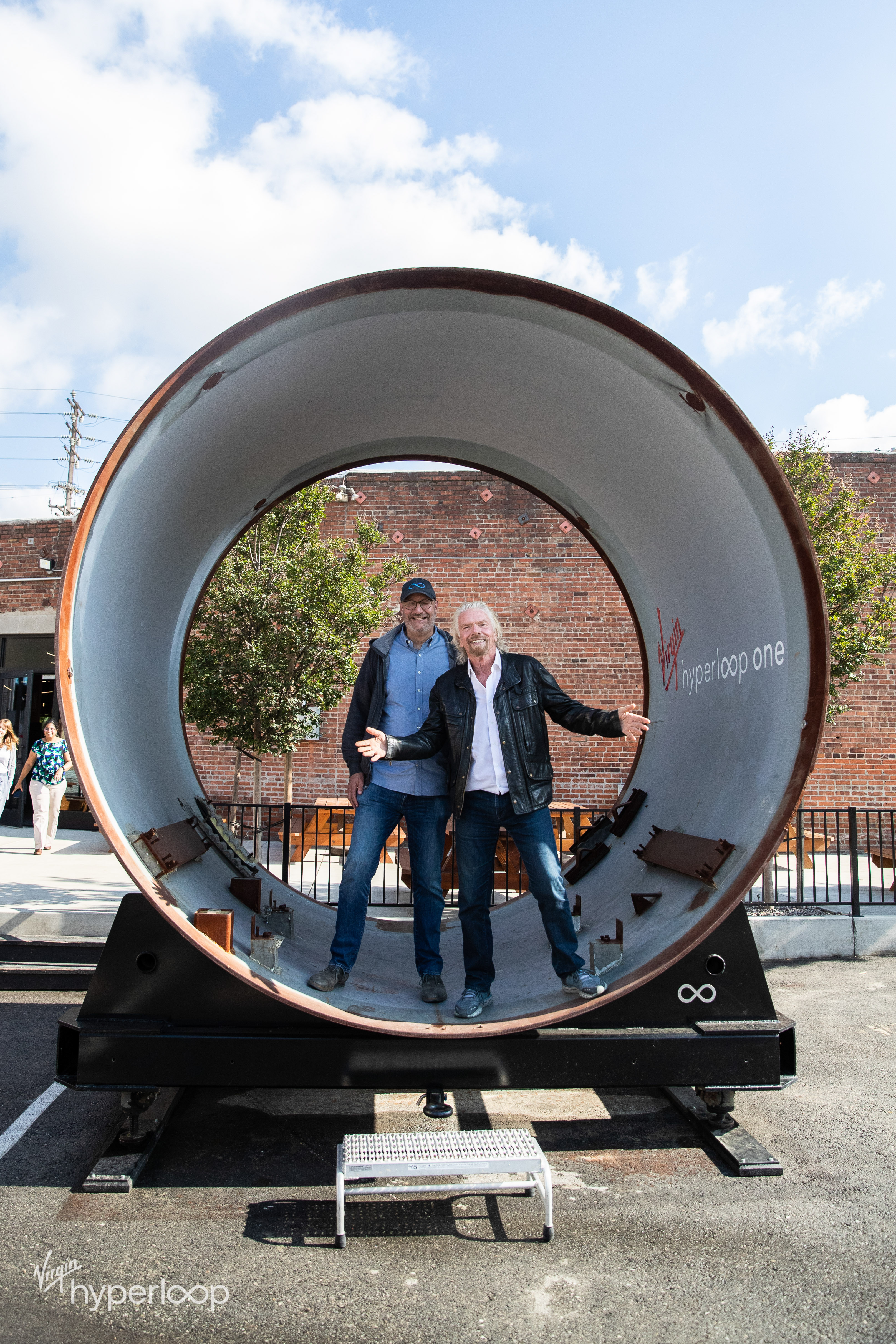By Amanda Larch

When people think of West Virginia, they often picture beautiful mountains, active coal mines and tight-knit communities. While natives know Almost Heaven is all that and more, outsiders don’t often associate the Mountain State with things like cutting-edge technology and major innovation.
In October, Virgin Hyperloop—a member of the multinational venture conglomerate Virgin Group Ltd.—announced that, after an extensive search, West Virginia was chosen as the site of its new safety certification center, which will be used to regulate and test the safety systems behind Hyperloop before it becomes available for wide-scale use.

A New Way to Travel
Hyperloop is a new form of sustainable, high-speed mass transit that produces zero direct emissions. Hyperloop vehicles, also known as pods, will travel at speeds of up to 600 miles per hour through tubes, which have no atmospheric pressure. Hyperloop’s proprietary maglev system causes the vehicles to successfully travel through the tubes safely and quickly. In 2017, Virgin Hyperloop One completed its third phase of testing, achieving test speeds of 240 miles per hour, and it was estimated that a trip from New York to Washington, D.C., could take as little as 30 minutes.
“In 2017, we showed the world that Hyperloop can actually work and exist,” says Ryan Kelly, vice president of marketing and communications for Virgin Hyperloop. “That was a huge step for us and a huge milestone in showing that this technology works and makes sense.”
While that venture was successful, the company knew it needed to safety certify its vehicle for passengers. The $500 million certification center will be constructed on 800 acres of repurposed coal mine and brownfield sites in Grant and Tucker counties. The planning and design work are already underway and will continue into 2021, with hopes to break ground in 2022.
“The goal of the Hyperloop certification center is to work with regulators in the U.S. and hopefully around the world to safety certify a Hyperloop system so we can start building projects globally,” says Kelly. “We have been working with the federal government and different state governments to discuss this. We are definitely a company that wants to disrupt with government together. As we look at our collective future, we want to know how Hyperloop fits into that future.”
Hyperloop has received bipartisan and bicameral support for its efforts throughout the country, most recently from U.S. Secretary of Transportation Elaine Chao, who announced a guiding principles document for Hyperloop and officially named it as the fifth mode of mass transit. Virgin Hyperloop’s goal is to be regulated under the Federal Rail Administration. The technology has already been made eligible for public funds to become a global hub as the next form of mass transportation.
“Hyperloop as a concept is the first new form of mass transportation in over 100 years,” says Kelly. “This is not just high in the sky, fun technology we’re testing in the lab at this point—this is potentially becoming a part of the nation’s plan moving forward.”

A Match Made in Heaven
In 2019, the Hyperloop team traveled across the country with its XP-1 vehicle—the first vehicle to do a Hyperloop run on the track—visiting states in an attempt to discover potential certification center sites.
“We wanted to get reactions from real people around the country who have never heard of Hyperloop and get them excited about the potential opportunity,” says Kelly.
West Virginia was not on the list of visitation sites, so state leadership took matters into its own hands.
Representatives from the West Virginia Development Office (WVDO) drove to the Hyperloop road show in North Carolina and told the Hyperloop team they had to consider the Mountain State. According to Kelly, although West Virginia was not part of Hyperloop’s original plan, the momentum and support for the opportunity from leaders within the state was incredibly strong.
“West Virginia went from not even being on our radar to being at the top of the list,” he says. “I think it speaks to the determination of West Virginia’s team and the consortium of people who were able to band together and present a proposal that was beneficial for both the citizens of West Virginia and Virgin Hyperloop as well.”
According to Mike Graney, executive director of the WVDO, his office and its representatives championed the state as the best potential site for the certification center and have been a catalyst in the process, maintaining a relationship with Virgin Hyperloop by fulfilling information requests, traveling to the testing site in Nevada and helping select the West Virginia site.
“It’s not necessarily easy to find a relatively flat stretch that runs for six and a half miles in West Virginia,” says Graney. “We struggled with finding exactly what they wanted, but then we identified this facility in Grant and Tucker counties. It made a lot of sense, a former coal mining site and a brownfield. The Hyperloop team was excited about having the opportunity to use the former coal mining site and a brownfield and repurpose that property.”
Western Pocahontas Properties will donate the 800 acres of land for the project, meaning imminent domain will not be a factor in gathering resources for the location. A bonus for the Virgin Hyperloop team in choosing West Virginia as the working site is its collective love of the outdoors.
“This staff of young engineers likes to live, they like to work, and they like to play—and a lot of them like to play outside,” says Graney. “Many of them are rock climbers, mountain bikers and fly fisherman, and when it comes to that, West Virginia wins.”

A Game Changer for West Virginia
Hyperloop will directly hire between 150-200 engineers and technicians to work at the West Virginia facility upon completion. Additionally, the project will create an estimated 13,000 local jobs as needed in construction, manufacturing, operation and maintenance.
Not only will the facility bring in jobs, but Kelly says it is important to the company and its partners to also use this as an opportunity to connect with the state’s education system. Both West Virginia University (WVU) and Marshall University will be involved in the project, as being able to train and utilize local talent from the state’s higher education system is key to building the center.
The Hyperloop team’s criteria for selecting the location included strong, bipartisan support and stakeholder engagement at every level to ensure sustainability.
“We feel the West Virginia team was incredibly strong, and there was strong support from the political arena,” says Kelly. “We saw support at the local, state and federal levels, including the senators, and everyone understands we will be working with them to create jobs.”
Part of that bipartisan support came from Senator Shelley Moore Capito, who is thrilled that Hyperloop has chosen the Mountain State for its next phase of development.
“This center will play a huge role in shifting Hyperloop from the research and development phase to the working reality,” says Capito. “Of course, this announcement means good jobs, but, more importantly, it is another indication that West Virginia is on the cusp of being the country’s new tech hub. We’re located at the perfect intersection of access to Washington, D.C.; New England; and the Midwest. We have the hardworking workforce. We have WVU and Marshall with a pipeline of West Virginia’s best and brightest. We have the business-friendly climate. We enjoy a low cost of living and beautiful outdoors. There’s a lot to love about investing in our state. I’m glad Virgin Hyperloop could see all those things, and I know other global businesses will take notice.”

Senator Joe Manchin also expressed his enthusiasm for Hyperloop, as he had previously reached out to Virgin’s CEO, Sir Richard Branson, to highlight the benefits of doing business in West Virginia.
“Almost a year ago, I learned about Virgin Hyperloop’s search for the right state to locate its testing facility and wrote to Sir Richard Branson, urging him to pick the Mountain State for the site of Virgin Hyperloop’s proposed certification center,” says Manchin. “After a great deal of collaboration with West Virginia stakeholders, I am thrilled Branson and the entire Virgin team recognized the great potential of West Virginia for this project, which could transform our country’s transportation system. I am optimistic about the future of West Virginia as we continue to grow across the technology, manufacturing and innovation sectors. This investment from Virgin is the beginning of a long partnership, and I hope others take note—West Virginia is a great place to do business.”










One Response
I am very pleased that Virgin Hyperloop has chosen WV to call home. We are glad to have them here and look forward to the potential business they can bring to the good hard working people of our state. As a manufacturer we hope for some involvement in their growth and are anxious to see what their needs will be. We feel that steel fabricators could play a pretty big part in the building of this project. We hope for the opportunity to work with them.